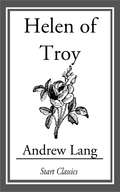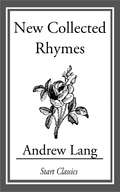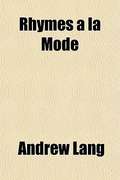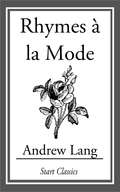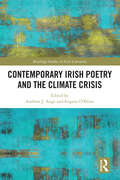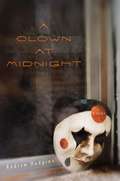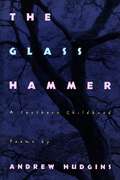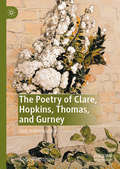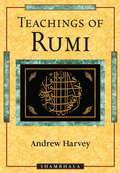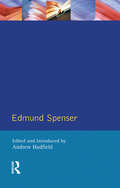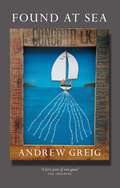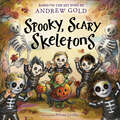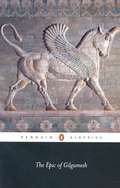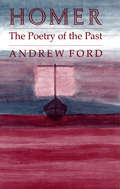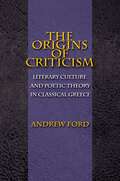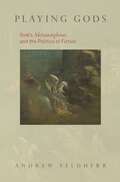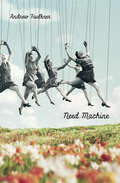- Table View
- List View
Helen of Troy
by Andrew LangAndrew Lang (1844-1912) was a prolific Scots man of letters, a poet, novelist, literary critic and contributor to anthropology. He now is best known as the collector of folk and fairy tales. He was educated at the Edinburgh Academy, St Andrews University and at Balliol College, Oxford. As a journalist, poet, critic and historian, he soon made a reputation as one of the ablest and most versatile writers of the day. Lang was one of the founders of the study of "Psychical Research," and his other writings on anthropology include The Book of Dreams and Ghosts (1897), Magic and Religion (1901) and The Secret of the Totem (1905). He was a Homeric scholar of conservative views. Other works include Homer and the Epic (1893); a prose translation of The Homeric Hymns (1899), with literary and mythological essays in which he draws parallels between Greek myths and other mythologies; and Homer and his Age (1906). He also wrote Ballades in Blue China (1880) and Rhymes la Mode (1884).
New Collected Rhymes
by Andrew LangAndrew Lang (1844-1912) was a prolific Scots man of letters, a poet, novelist, literary critic and contributor to anthropology. He now is best known as the collector of folk and fairy tales. He was educated at the Edinburgh Academy, St Andrews University and at Balliol College, Oxford. As a journalist, poet, critic and historian, he soon made a reputation as one of the ablest and most versatile writers of the day. Lang was one of the founders of the study of "Psychical Research," and his other writings on anthropology include The Book of Dreams and Ghosts (1897), Magic and Religion (1901) and The Secret of the Totem (1905). He was a Homeric scholar of conservative views. Other works include Homer and the Epic (1893); a prose translation of The Homeric Hymns (1899), with literary and mythological essays in which he draws parallels between Greek myths and other mythologies; and Homer and his Age (1906). He also wrote Ballades in Blue China (1880) and Rhymes la Mode (1884).
Rhymes a la Mode
by Andrew LangPurchase of this book includes free trial access to www. million-books. com where you can read more than a million books for free. This is an OCR edition with typos. Excerpt from book: ALMAE MATRES. (ST. ANDREWS, 1862. OXFORD, 1865. ) O T, Andrews by the Northern sea, A haunted town it is to me I A little city, worn and grey, The grey North Ocean girds it round. And o'er the rocks, and up the bay, The long sea-rollers surge and sound. And still the thin and biting spray Drives down the melancholy street, And still endure, and still decay, Towers that the salt winds vainly beat. Ghost-like and shadowy they stand Dim mirrored in the wet sea-sand. ALMAE MATRES. St. Leonard's chapel, long ago We loitered idly where the tall Fresh budded mountain ashes blow Within thy desecrated wall: The tough roots rent the tomb below, The April birds sang clamorous, We did not dream, we could not know How hardly Fate would deal with us O, broken minster, looking forth Beyond the bay, above the town, O, winter of the kindly North, O, college of the scarlet gown, And shining sands beside the sea, And stretch of links beyond the sand, Once more I watch you, and to me It is as if I touched his hand And therefore art thou yet more dear, O, little city, grey and sere, ALMAE MATRES. Though shrunken from thine ancient pride And lonely by thy lonely sea, Than these fair halls on Isis' side, Where Youth an hour came back to me A land of waters green and clear, Of willows and of poplars tall, And, in the spring time of the year, The white may breaking over all, And Pleasure quick to come at call. And summer rides by marsh and wold, And Autumn with her crimson pall About the towers of Magdalen rolled; And strange enchantments from the past, And memories of the friends of old, And strong Tradition, binding fast The flying terms with bands of gold, ? All these hath Oxford: all are dear, Bu. . .
Rhymes à la Mode
by Andrew LangAndrew Lang (1844-1912) was a prolific Scots man of letters, a poet, novelist, literary critic and contributor to anthropology. He now is best known as the collector of folk and fairy tales. He was educated at the Edinburgh Academy, St Andrews University and at Balliol College, Oxford. As a journalist, poet, critic and historian, he soon made a reputation as one of the ablest and most versatile writers of the day. Lang was one of the founders of the study of "Psychical Research," and his other writings on anthropology include The Book of Dreams and Ghosts (1897), Magic and Religion (1901) and The Secret of the Totem (1905). He was a Homeric scholar of conservative views. Other works include Homer and the Epic (1893); a prose translation of The Homeric Hymns (1899), with literary and mythological essays in which he draws parallels between Greek myths and other mythologies; and Homer and his Age (1906). He also wrote Ballades in Blue China (1880) and Rhymes la Mode (1884).
Shelley's Visions of Death
by Andrew LaceyThis book provides the first modern, in-depth analysis of Percy Bysshe Shelley’s engagement with the phenomenon of death. It argues that, for Shelley, this most nebulous of realities represents, first and foremost, possibility: Shelley’s poetic writings on death are both numerous and varied, presenting his reader, with differing degrees of confidence over the course of his brief but brilliant career, with several key visions of what death might be or actually is. Shelley’s Visions of Death stresses the seldom-appreciated fact that death was one of Shelley’s most enduring preoccupations, and also demonstrates the poet’s power to imagine, with startling variety, that which lies beyond the boundaries of experience.
Contemporary Irish Poetry and the Climate Crisis (Routledge Studies in Irish Literature)
by Andrew J. Auge and Eugene O’BrienContemporary Irish Poetry and the Climate Crisis addresses what is arguably the most crucial issue of human history through the lens of late-twentieth and early twenty-first-century Irish poetry. The poets that it surveys range from familiar presences in the contemporary Irish literary canon – Seamus Heaney, Derek Mahon, Paula Meehan, Moya Cannon – to lesser-known figures, such as the experimental poet Maurice Scully, contemporary poets Stephen Sexton and Sean Hewitt, and the Irish-language poets Simon Ó Faoláin, Bríd Ní Mhóráin, and Máire Dinny Wren. Adopting a variety of ecotheoretical approaches, the essays gathered here address several interrelated themes crucial to the climate crisis: the way in which the scalar scope of climate change interweaves local and global, distant past and imminent future, nature and culture; the critical importance of acknowledging the complex kinship of the human and nonhuman; and the necessity of warning against the devastating environmental losses to come while mourning those that already occurred. Ultimately, by envisioning new ways of existing on an earth that humans no longer dominate, this book engages in what the philosopher Jonathan Lear refers to as a process of ‘radical anticipation’.
A Clown at Midnight: Poems
by Andrew Hudgins“Recklessness and rigor, in equal measure, mark the stirring poetics of Andrew Hudgins in this fine new book. Hudgins can wrestle a rhyme scheme into submission with one hand tied behind his back and can penetrate the black heart of history with a single, subtly rendered detail. He laughs with Democritus and weeps with Heraclitus and, line by distillate line, contrives a tonic antidote to “the acetone / of American inattention.” — Linda GregersonIn A Clown at Midnight Andrew Hudgins offers a meditation on humor with a refreshing poignancy and cutting wit. He touches on love and nature, but at its core this collection is about the consolations and terrors, the delights and discomforts, of laughter, taking its title from a quote by Lon Chaney Sr.: “The essence of true horror is a clown at midnight.” Skillfully probing paradoxes, Hudgins conjures the titular clown: “Down these mean streets a bad joke walks alone / bruised head held low, chin tucked in tight, eyes down / defiant. He laughs and it turns to a moan.” Hudgins gives us utter honesty and accessible verse, exploring moments both uncomfortable and satirical while probing the impulse to confront life’s most demanding trials with laughter.“Hudgins’s poems are often funny, hinging on a joke or wisecrack or malapropism, but human nature red in tooth and claw has always been his greatest theme.” — BookPage
American Rendering: New and Selected Poems
by Andrew HudginsAmerican Rendering showcases twenty-four new poems as well as a generous selection from Andrew Hudgins’s six previous volumes, spanning a distinguished career of more than twenty-five years. Hudgins, who was born in Texas and spent most of his childhood in the South, is a lively and prolific poet who draws on his vivid Southern and,more specifically, Southern Baptist, childhood. Influenced by writers such as John Crowe Ransom,William Faulkner, Flannery O’Connor, and James Dickey, Hudgins has developed a distinctively descriptive form of the Southern Gothic imagination. His poems are rich with religious allusions, irreverent humor, and at times are inflected with a dark and violent eroticism.Of Hudgins’s most recent collection, Ecstatic in the Poison, Mark Strand wrote: “[It] is full of intelligence, vitality, and grace. And there is a beautiful oddness about it.Dark moments seem charged with an eerie luminosity and the most humdrum events assume a startling lyric intensity. A deep resonant humor is everywhere, and everywhere amazing.”
The Glass Hammer
by Andrew HudginsThe Glass Hammer, the fourth book of poems by the celebrated author of After the Lost War, is a southern narrative poem. It tells the story of a boy brought up in a military family in Texas and Alabama, and it is as rich in emotion and experience as any novel, as family life itself. In a sequence of sixty-five short lyrics, the narrator moves from the anecdotal circumstances of his infancy to the rebellions of his youth and adolescence, from the tragedy of his mother's death to the acceptance of his father's disciplinary love. This sequence of poems is human, solid, passionate, rueful, and eminently readable. It is as transparent as a mountain brook and moves as fast. It is as painful and powerful and surprising as first love and first loss.
The Poetry of Clare, Hopkins, Thomas, and Gurney: Lyric Individualism
by Andrew HodgsonThis book attends to four poets – John Clare, Gerard Manley Hopkins, Edward Thomas, and Ivor Gurney – whose poems are remarkable for their personal directness and distinctiveness. It shows how their writing conveys a potently individual quality of feeling, perception, and experience: each poet responds with unusual commitment to the Romantic idea of art as personal expression. The book looks closely at the vitality and intricacy of the poets’ language, the personal candour of their subject matter, and their sense, obdurate but persuasive, of their own strangeness. As it traces the tact and imagination with which each of the four writers realises the possibilities of individualism in lyric, it affirms the vibrancy of their contributions to nineteenth and twentieth-century poetry.
Teachings of Rumi
by Andrew HarveyJelalludin Rumi (1207-1273) led the quiet life of an Islamic teacher in the central Anatolia (modern Turkey) until the age of thirty-seven, when he met a wandering dervish named Shams Tabriz--through whom he encountered the Divine Presence in a way that utterly transformed him. The result of this epiphany was the greatest body of mystical poetry the world has ever seen, and the establishment of a spiritual movement that would eventually stretch from Africa to China, enduring to our own day. This collection of versions of Rumi by Andrew Harvey contains some of the master's most luminous verse, along with selections from his lesser-read prose works, with the aim of presenting a balanced view of his teaching that includes both the high-flying love of God and the rigorous path of discipline essential for those who seek it.
Edmund Spenser (Longman Critical Readers)
by Andrew HadfieldThis collection represents some of the best recent critical writing on Edmund Spenser, a major Renaissance English poet. The essays cover the whole of Spensers work, from early literary experiments such as The Shepeardes Calendar, to his unfinished crowning work,The Fairie Queene. The introduction provides an overview of critical responses to Spenser, setting his work and the debates which it has generated in their perspective contexts: new historicist, post-structural, psychoanalytic and feminist. His study also covers the critical responses of leading British, Irish and American scholars.
The Cambridge Companion to Spenser
by Andrew HadfieldIn this accessible and rigorous introduction to Spenser, fourteen specially-commissioned essays provide all the essential information required to appreciate and understand Spenser's rewarding and challenging work. The Companion guides the reader through Spenser's poetry and prose, and provides extensive commentary on his life, the historical and religious context in which he wrote, his wide reading in Classical, European and English poetry, his sexual politics and use of language. A chronology and further reading lists make this volume indispensable for any student of Spenser.
Found at Sea
by Andrew GreigThe acclaimed Scottish writer reflects on a small boat excursion through the Orkney Islands in this poetry collection of &“touching lyrical sensitivity&” (The Times Literary Supplement, UK). Andrew Greig has won much acclaim and numerous awards for his novels, poetry, and nonfiction evoking the natural beauty of rural Scotland or chronicling his far-flung adventures. In this volume, his love for his home and his passion for travel come together. One summer evening, Greig embarked upon a micro-odyssey from his home in Stromness to the island of Cava, and Found at Sea recounts in poetic sequence the tale of his open dinghy voyage. Written in six weeks, this is a &“very wee epic&” about sailing, male friendship, and a voyage. In sailing small boats in scary open waters, Andrew Greig has found a new activity and a new metaphor for life.
Spooky, Scary Skeletons
by Andrew GoldSpooky, scary skeletons…will send shivers down your spine in this adorable sing-along picture book based on the TikTok viral song by Andrew Gold (best known for writing The Golden Girls theme song, "Thank You for Being a Friend.")Follow along as five little skeletons go trick-or-treating on Halloween night. But when they take their scares too far, can a skeleton dance save the day?Andrew Gold released "Spooky, Scary Skeletons" in 1996. Since then, it has become a viral sensation, with over 8 billion views on both YouTube and TikTok... and counting! Now, fans of all ages can sing along to the complete lyrics, which have been paired with playful illustrations. Spooky, scary skeletonsSpeak with such a screech—You'll SHAKE and SHUDDER in surpriseWhen you hear these zombies shriek. An ideal read-aloud for Halloween or ANY time of year, this is sure to become a cherished part of family bookshelves for years to come.
The Epic of Gilgamesh
by Andrew GeorgeEver since the first modern translations were published more than one hundred years ago, the Gilgamesh epic has been recognized as one of the great masterpieces of world literature.
The Cambridge Companion to Piers Plowman
by Andrew Cole Andrew GallowayPiers Plowman has long been considered one of the greatest poems of medieval England. Current scholarship on this alliterative masterpiece looks very different from that available even a decade ago. New information about the manuscripts of the poem, new historical discoveries, and new investigations of its literary, cultural and theoretical scope have fundamentally altered the very meaning of Langland's art. This Companion thus critically surveys traditional scholarship, with the aim of recuperating its best insights, and it ventures forth into newer areas of inquiry attuned to questions of social setting, institutional context, intellectual and literary history, theory, and the revitalized fields of codicology and paleography. By proceeding through chapters that offer cumulatively wider views as well as stand-alone analyses of topics most crucial to understanding Piers Plowman, this Companion gives serious students and seasoned scholars alike up-to-date knowledge of this intricate and beautiful poem.
Homer: The Poetry of the Past
by Andrew FordAndrew Ford here addresses, in a manner both engaging and richly informed, the perennial questions of what poetry is, how it came to be, and what it is for. Focusing on the critical moment in Western literature when the heroic tales of the Greek oral tradition began to be preserved in writing, he examines these questions in the light of Homeric poetry. Through fresh readings of the Iliad and the Odyssey, and referring to other early epics as well, Ford deepens our understanding of what poetry was at a time before written texts, before a developed sense of authorship, and before the existence of institutionalized criticism.Placing what is known about Homer's art in the wider context of Homer's world, Ford traces the effects of the oral tradition upon the development of the epic and addresses such issues as the sources of the poet's inspiration and the generic constraints upon epic composition. After exploring Homer's poetic vocabulary and his fictional and mythical representations of the art of singing, Ford reconstructs an idea of poetry much different from that put forth by previous interpreters. Arguing that Homer grounds his project in religious rather than literary or historical terms, he concludes that archaic poetry claims to give a uniquely transparent and immediate rendering of the past.Homer: The Poetry of the Past will be stimulating and enjoyable reading for anyone interested in the traditions of poetry, as well as for students and scholars in the fields of classics, literary theory and literary history, and intellectual history.
The Origins of Criticism: Literary Culture and Poetic Theory in Classical Greece
by Andrew FordBy "literary criticism" we usually mean a self-conscious act involving the technical and aesthetic appraisal, by individuals, of autonomous works of art. Aristotle and Plato come to mind. The word "social" does not. Yet, as this book shows, it should--if, that is, we wish to understand where literary criticism as we think of it today came from. Andrew Ford offers a new understanding of the development of criticism, demonstrating that its roots stretch back long before the sophists to public commentary on the performance of songs and poems in the preliterary era of ancient Greece. He pinpoints when and how, later in the Greek tradition than is usually assumed, poetry was studied as a discipline with its own principles and methods. The Origins of Criticism complements the usual, history-of-ideas approach to the topic precisely by treating criticism as a social as well as a theoretical activity. With unprecedented and penetrating detail, Ford considers varying scholarly interpretations of the key texts discussed. Examining Greek discussions of poetry from the late sixth century B.C. through the rise of poetics in the late fourth, he asks when we first can recognize anything like the modern notions of literature as imaginative writing and of literary criticism as a special knowledge of such writing. Serving as a monumental preface to Aristotle's Poetics, this book allows readers to discern the emergence, within the manifold activities that might be called criticism, of the historically specific discourse on poetry that has shaped subsequent Western approaches to literature.
Playing Gods: Ovid's Metamorphoses and the Politics of Fiction
by Andrew FeldherrThis book offers a novel interpretation of politics and identity in Ovid's epic poem of transformations, the Metamorphoses. Reexamining the emphatically fictional character of the poem, Playing Gods argues that Ovid uses the problem of fiction in the text to redefine the power of poetry in Augustan Rome. The book also provides the fullest account yet of how the poem relates to the range of cultural phenomena that defined and projected Augustan authority, including spectacle, theater, and the visual arts. Andrew Feldherr argues that a key to the political as well as literary power of the Metamorphoses is the way it manipulates its readers' awareness that its stories cannot possibly be true. By continually juxtaposing the imaginary and the real, Ovid shows how a poem made up of fictions can and cannot acquire the authority and presence of other discursive forms. One important way that the poem does this is through narratives that create a "double vision" by casting characters as both mythical figures and enduring presences in the physical landscapes of its readers. This narrative device creates the kind of tensions between identification and distance that Augustan Romans would have felt when experiencing imperial spectacle and other contemporary cultural forms. Full of original interpretations, Playing Gods constructs a model for political readings of fiction that will be useful not only to classicists but to literary theorists and cultural historians in other fields.
Need Machine
by Andrew FaulknerNeed Machine clamours through the brain like an unruly marching band. Both caustic and thoughtful, these poems offer a topography of modern life writ large in twitchy, neon splendor, in a voice as sure as a surgeon and as trustworthy as a rumour. Honest, irreverent and sharply indifferent, this book will hogtie you with awe.
A Poem for Grandma (Leveled Readers 4.4.4)
by Andrew ClementsAn extremely shy young girl overcomes her shyness and reads one of her poems to an audience.
The Handiest Things in the World
by Andrew ClementsThis book showcases the importance of hands in our life and how to utilize them in such a way as to keep them clean.

